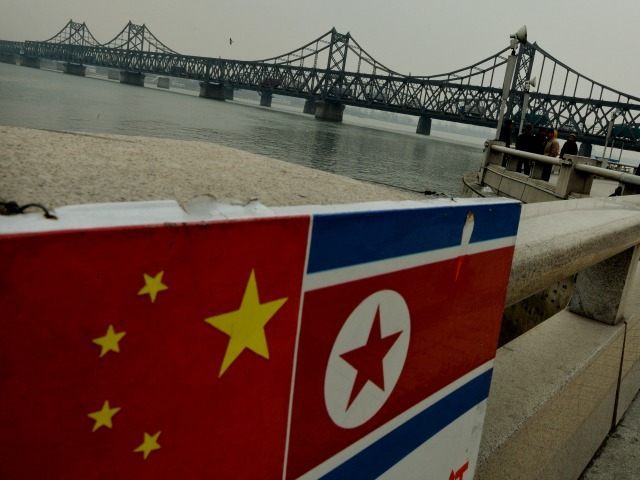China has summoned the North Korean ambassador in ire over reports circulating last night that North Korea had detonated a hydrogen bomb, flagrantly violating international law.
While international condemnation of North Korea’s nuclear program is common in the free world, China has long been North Korea’s most formidable diplomatic partner. Such a public rebuke represents a turning point in Chinese-North Korean relations.
“We strongly urge the North Korean side to remain committed to its commitment of denuclearization and stop taking any actions that will make the situation worse,” Chinese Foreign Ministry spokeswoman Hua Chunying told reporters Wednesday morning. She noted that, while evidence suggested that North Korea detonated a nuclear weapon, the government’s claim that the weapon in question was a hydrogen bomb has yet to be confirmed.
Hua continued: “China is steadfast in its position that the Korean Peninsula should be denuclearized and nuclear proliferation should be prevented to maintain peace and stability in Northeast Asia.” She noted that North Korea had not notified the Chinese government that it was staging such a test, even though its seismic impact was felt within China, causing panic in some communities.
South Korean news agency Yonhap notes that Chinese television reported that Chinese schoolchildren and workers in border towns reported they “clearly felt tremors” following the nuclear test. The United States Geological Survey reported the impact to have a magnitude of 5.1.
Relations between China and North Korea have deteriorated significantly since Kim Jong-Un took power, and experts predict this test will only serve to hinder North Korean relations with its biggest ally even further. “That will have a huge impact on North Korea’s economy,” Lu Chao, director of the Border Studies Institute at the Liaoning Academy of Social Sciences in South Korea, tells the Associated Press. A further weakened North Korean economy could trigger a nationwide famine. China already suffers from Kim’s inability to feed his population; North Korean soldiers routinely ransack poorly-protected Chinese border towns. Neighboring Japan has been flooded this year with apparently North Korean ships full of corpses, believed to be desperate fishermen braving unreasonable weather to eat.
In addition to the diplomatic chill between China and North Korea, South Korean President Park Geun-hye has made substantial efforts to improve relations between her nation and China. Kim Jong-Un was notably absent at China’s World War II victory parade in September, while Park sat by Chinese President Xi Jinping’s side.
While North Korea’s Korean Central News Agency claimed the bomb in question was a hydrogen bomb, which uses nuclear fusion to generate a larger impact, experts doubt that the weapon in question was such a bomb. “South Korea’s spy agency said that there is a possibility for it not being an H-bomb test given the small size of the seismic activity,” China’s Xinhua notes, adding that South Korean Defense Minister Hwang In-Moo has dismissed the possibility of the weapon being a hydrogen bomb as “unlikely.”
Rodong Sinmun, North Korea’s official newspaper, is celebrating the “startling event to be specially recorded in the national history spanning 5 000 years in the exciting period when all service personnel and people of the DPRK are making a giant stride” in an article published shortly after the blast this morning. Celebrating the rogue state’s “eye-catching miracles,” the article notes the the bomb was manufactured through “indigenous wisdom” in order to intimidate the United States. “The U.S. is a gang of cruel robbers which has worked hard to bring even a nuclear disaster to the DPRK, not content with having imposed the thrice-cursed and unheard-of political isolation, economic blockade and military pressure on it for the mere reason that it has differing ideology and social system and refuses to yield to the former’s ambition for aggression,” the article claims.
Other allies of North Korea in the international community include Bashar al-Assad’s Syria, Cuba, and Angola, who have not pronounced themselves yet on the alleged hydrogen bomb test.

COMMENTS
Please let us know if you're having issues with commenting.